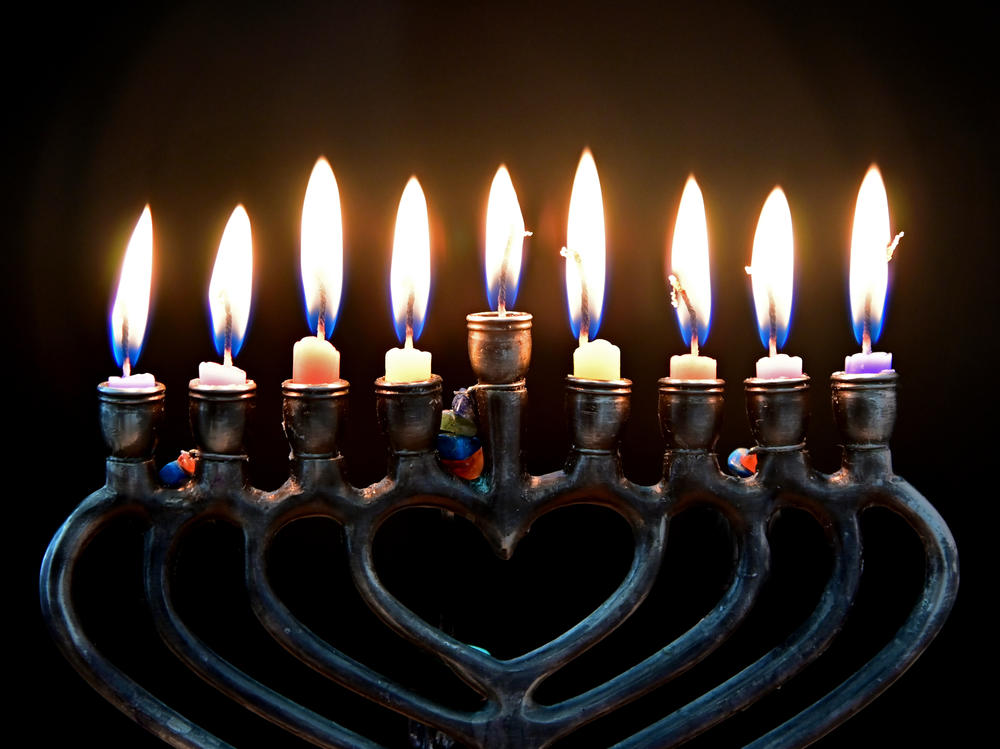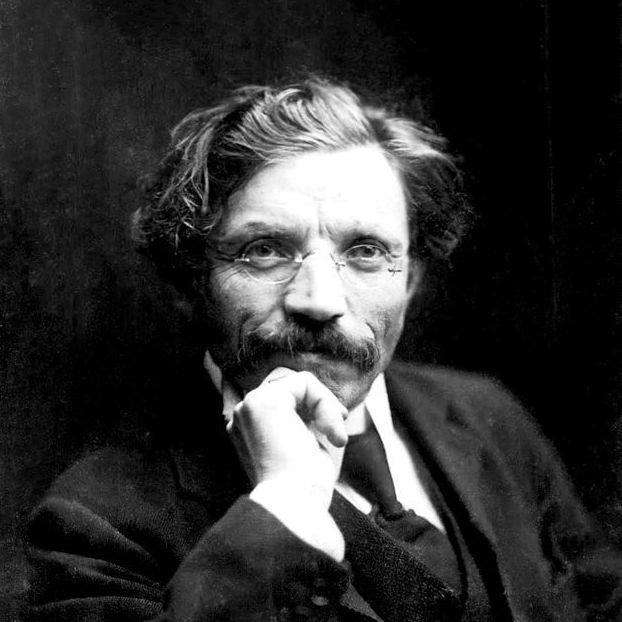Section Branding
Header Content
Hanukkah Lights 2021
Primary Content
Hanukkah commemorates the Maccabees' victory over the Greeks and rededication of the Second Temple. The centerpiece of the Hanukkah celebration is the menorah, and it is a time of year to celebrate love, family and tradition.
For the 31st anniversary of Hanukkah Lights, Susan Stamberg and Murray Horwitz revisit old favorites from authors Sholem Aleichem, Rebecca Newberger Goldstein, Ellen Orleans, Lia Pripstein and Clement Clarke Moore. Listen to the full special above or hear individual stories below.
Sholem Aleichem (1859 — 1916) was a beloved Yiddish writer and humorist, noted for his many stories of life in the shtetl. A prolific writer, Aleichem published a number of successful novels and plays, and is perhaps best remembered for his fictional confessions, letters and monologues written in the voices of ordinary religious Jews. The most famous of these voices is Tevye the Dairyman, whose stories were immortalized in the Broadway musical Fiddler on the Roof.
"Hanukkah Gelt," tells the humorous story of two young brothers collecting Hanukkah money from all of their relatives.
Rebecca Newberger Goldstein was educated at Barnard College, Columbia University, and Princeton University, where she received her Ph.D. in philosophy. In addition to being a professor of philosophy, she also writes fiction. Her first novel was The Mind-Body Problem, and her non-fiction books include Betraying Spinoza: The Renegade Jew Who Gave Us Modernity and Plato at the Googleplex: Why Philosophy Won't Go Away. She has received a MacArthur Fellowship, the so-called "genius grant," and is a member of the American Academy of Arts and Sciences. In 2015, she was awarded the National Medal of the Humanities by President Obama.
"Gifts of the Last Night" is about strange forces haunting the Upper West Side on the last night of Hanukkah, including the most wondrous of them all: the spirit of generosity.
Ellen Orleans is the author of five books of LGBT social commentary and humor. Her book of short stories about Caribou Ranch Open Space, Mother Blue and the Deep Down Under and her memoir Inside, The World is Orange, will be published in 2022.
"How to Spell the Name of God" originally aired in 2019 and is centered around a girl who loves words and is grappling with the most complicated of them all.
Lia Pripstein was born in the Soviet Union and raised in Israel. Her English-language works have been published in JewishFiction.net, Bacopa Literary Review and forthcoming in New Voices: Contemporary Writers Confronting the Holocaust. She has recently completed an upmarket political thriller set against the backdrop of the Israeli-Palestinian conflict.
Her story "Of Love And Latkes" was featured on NPR's Hanukkah Lights in 2016 and she is honored to have it included in the program's list of favorites for 2021.
Clement Clarke Moore (1779 — 1863) was an American scholar and educator. He was a professor at the General Theological Seminary in New York City, specializing in Greek and Eastern literature.
Translated into Yiddish by Marie Jaffe for our 1991 broadcast, "A Visit from St. Nicholas" is Moore's best-known work. First published on December 23, 1823, the poem describes a father who sees Saint Nicholas bringing gifts to children on Christmas Eve. The poem helped establish Saint Nicholas as the joyful, plump, toy-bearing figure of the American Christmas tradition.
Copyright 2021 NPR. To see more, visit https://www.npr.org.






